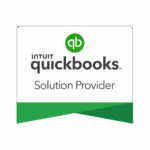Over the years, tax season has become synonymous with stress and confusion for many businesses. With ever-changing tax laws and regulations, staying up to date can feel daunting. As we approach Tax Season 2024, companies must understand what to expect and how to navigate the process effectively. This comprehensive guide will cover everything businesses need to know to tackle this year-level tax season with confidence and ease.
Understanding the Tax Code
Fundamental Changes for Tax Season 2024
Changes in the tax code for the 2024 tax year will impact businesses in various ways. Some fundamental changes include tax rate updates such as rates, deductions, and credits. It is crucial for companies to stay updated on these changes to ensure compliance with the law and take advantage of any new opportunities for tax savings.
One significant change for 2024 is the adjustment of tax brackets, which may affect how much businesses owe in taxes based on their income level. Additionally, new deductions and credits are available, such as incentives for green investments or research and development activities. Businesses should work closely with their financial advisors to understand how these changes apply to their situation.
Overall, staying informed about the fundamental changes for the 2024 tax year is crucial for businesses to plan their financial strategies and effectively minimize their tax liabilities. By being proactive and seeking professional guidance, companies can navigate the complexities of the tax code and make informed decisions to support their growth and success.
Understanding Business Tax Categories
On the federal level, business entities are typically categorized into different tax structures, such as sole proprietorships, partnerships, corporations, or limited liability companies (LLCs). Each category has its own set of rules and requirements for taxation, which can significantly impact how much a business owes in taxes.
Business owners should carefully consider the implications of each tax category and choose the one that best suits their business goals and financial needs. For example, corporations are subject to double taxation, where profits are taxed at both the corporate and individual levels. In contrast, pass-through entities like partnerships and S corporations pass earnings to their owners to be taxed personally.
The choice of business tax category can have long-term implications for a company’s financial health and legal obligations. Business owners should seek professional advice from tax experts or accountants when making decisions about structure and tax classification.
Preparing Your Business for Tax Season
Organizing Financial Records
Your business’s financial records are the backbone of your tax filing process. To ensure a smooth tax season, you must organize all your financial documents accurately and securely. Start by categorizing your expenses, invoices, receipts, and other relevant documents. Utilize digital filing systems or cloud storage to keep all your records in one place. By organizing your financial records efficiently, you will save time and minimize the risk of errors during tax filing.
Utilizing Accounting Software Effectively
Leveraging accounting software is an efficient way to streamline your tax preparation process. These tools can help automate repetitive tasks, track expenses, manage invoices, and generate financial reports. Before tax season begins, ensure that your accounting software is updated with the latest version and that your financial data is accurate. By utilizing accounting software effectively, you can enhance the accuracy of your financial records and simplify the tax filing process.
Business owners can benefit significantly from accounting software by gaining real-time insights into their financial performance, identifying potential areas for cost savings, and improving overall financial management. These tools save time and provide valuable data that can help businesses make informed decisions and plan for future growth.
Tips for Efficient Bookkeeping to Ease Tax Filing
Staying organized is key in bookkeeping for tax season. Implementing efficient bookkeeping practices throughout the year can significantly ease the tax filing process. Keep detailed records of all transactions, reconcile accounts regularly, and maintain a clear system for tracking income and expenses. By establishing good bookkeeping habits, you can avoid last-minute scrambling and ensure a stress-free tax season.
- Utilize separate bank accounts for business and personal expenses
- Track expenses as they occur to avoid missing deductions
- Regularly review financial statements to spot any discrepancies
Recognizing the importance of accurate bookkeeping benefits your tax filing and provides valuable insights into your business’s financial health and aids in making informed decisions for future growth.
Filing
Efficiently filing your taxes is crucial for compliance and avoiding penalties. Prioritize accuracy and timely submission to prevent any issues with the tax authorities. Keep track of important deadlines and ensure all necessary forms and documents are prepared well. Additionally, consider seeking professional assistance if you require guidance with complex tax matters.
- Double-check all calculations and information before submitting
- Keep copies of all filed tax documents for your records
- Consider filing electronically for faster processing and confirmation
Recognizing the significance of proper tax filing procedures can help your business maintain financial stability and build a positive relationship with tax authorities.
Utilizing
Utilizing accounting software and efficient bookkeeping practices are essential components of preparing your business for tax season. Combining these tools and strategies allows you to streamline your tax filing process, minimize errors, and gain valuable insights into your business’s financial performance. Stay proactive, stay organized, and remain informed to ensure a successful tax season ahead.
Filing Business Taxes
To ensure a smooth tax filing process for your business, it is crucial to be aware of the critical deadlines that you must meet. Keeping track of these important dates will help avoid penalties and interest charges. The deadline for filing your business tax return typically falls on the 15th day of the fourth month after the end of your fiscal year. For most businesses, this means filing by April 15th. However, if the 15th falls on a weekend or holiday, the deadline is extended to the next business day.
Deadlines to Keep in Mind
Remember that if your business operates as a partnership or S corporation, the filing deadline is typically March 15th. On the other hand, C corporations usually have until April 15th to file their tax returns. It is important to mark these dates on your calendar and start preparing your documentation well in advance to avoid any last-minute rush. Additionally, if you anticipate that you won’t be able to file by the deadline, requesting an extension is crucial to avoid late filing penalties.
Forms and Documentation Required
One of the important aspects of filing your business taxes is gathering all the necessary forms and documentation. The specific forms you must file depend on your business structure and operations. Common forms include the 1099 series for reporting income, W-2 forms for employee wages, and various schedules and worksheets. Make sure to compile all financial statements, receipts, and records accurately to support the figures on your tax return. Keeping organized records throughout the year will make this process much more manageable. With meticulous attention to detail and proper record-keeping, you can ensure your tax return is complete and accurate. Be prepared to provide any additional documentation the IRS may request to support your filings. By staying organized and proactive in gathering the necessary forms and documents, you can streamline the tax filing process and minimize the risk of errors or audits.
Step-by-Step Guide to Completing Your Tax Return
Any business owner can benefit from a step-by-step guide to completing their tax return. The following table outlines the critical steps involved in this process: Step 1:Step 2: Fill out the relevant tax forms accurately. Step 3: Double-check your calculations and review them for accuracy. Step 4: Submit your tax return by the deadline to the IRS. It is important to follow these steps carefully to ensure your tax return is filed correctly and on time. Step 2: Fill out the relevant tax forms accurately. Step 3: Double-check your calculations and review them for accuracy. Step 4: If you encounter any difficulties or have questions during the process, don’t hesitate to consult with a tax professional for guidance.
E-filing vs. Paper Filing: Choosing the Best Option
Forms can be filed electronically or by mail, but choosing the best option for your business depends on various factors. E-filing offers convenience, speed, and accuracy, while paper filing may be preferred for those who feel more comfortable with traditional methods. Consider the size of your business, the complexity of your tax return, and your comfort level with technology when deciding between e-filing and paper filing. Choosing the filing method that aligns with your business’s needs and preferences is crucial for a smooth tax filing experience. Make sure to weigh each option’s pros and cons before deciding. Additionally, be aware of any specific requirements or restrictions that may apply to your business type when choosing between e-filing and paper filing.
Business
When filing your business taxes, thorough preparation and attention to detail are essential. By keeping track of deadlines, gathering the necessary forms and documents, following a step-by-step guide, and choosing the best filing option, you can confidently navigate the tax filing process. If you encounter any challenges along the way, don’t hesitate to seek assistance from a tax professional to ensure compliance and accuracy in your tax filings.
Small Business Considerations
Tax Deductions and Credits Exclusive to Small Businesses
For small businesses, specific tax deductions and credits can help reduce taxable income and lower overall tax liability. Common deductions include expenses related to operating the business, such as office rent, utilities, supplies, and employee salaries. Small businesses may also be eligible for tax credits, such as the Small Business Health Care Tax Credit, which helps cover the cost of providing health insurance to employees.
Small business owners must keep detailed records of all expenses and consult with a tax professional to ensure they maximize their deductions and credits. Taking advantage of these tax breaks can significantly improve a small business’s financial health.
Additionally, small businesses may qualify for special deductions related to equipment purchases, vehicle expenses, and home office deductions. These deductions can vary based on the type of business and its structure, so it’s crucial to stay informed and seek guidance from a tax expert.
Self-Employment Tax Insights
Self-employment tax credits can help offset the burden of paying both the employer and employee portion of Social Security and Medicare taxes. Self-employed individuals can deduct half of the self-employment tax on their tax return, providing some relief for sole proprietors, freelancers, and independent contractors.
The self-employment tax’s intricacies are imperative for self-employed small business owners. Keeping accurate records of income and expenses, utilizing deductions and credits, and planning for tax obligations throughout the year can help alleviate the tax burden associated with self-employment.
Working with a tax professional specializing in small business taxes can provide valuable insights and strategies for effectively managing self-employment tax. By staying proactive and informed, self-employed individuals can confidently navigate the complexities of tax season.
Navigating Estimated Taxes and Quarterly Payments
Exclusive to small businesses, navigating estimated taxes and quarterly payments is crucial for avoiding penalties and maintaining compliance with the IRS. Small business owners are typically required to make quarterly estimated tax payments if they expect to owe $1,000 or more in taxes for the year.
Business owners must accurately estimate their annual income and expenses to determine the appropriate quarterly tax payments. Failure to make timely payments or underestimating tax obligations can result in penalties and interest charges, which can impact the business’s financial stability.
Consulting with a tax professional can help small business owners develop a tax payment plan that aligns with their cash flow and financial projections. By staying organized and proactive in meeting quarterly tax obligations, small businesses can avoid unnecessary penalties and maintain compliance with tax laws.
Corporate Taxes
Understanding Corporate Tax Rates and Brackets
To effectively manage your corporate taxes, it is crucial to understand the various tax rates and brackets that apply to businesses. Corporate tax rates can vary based on the corporation’s taxable income and are subject to change annually. By knowing the tax rates and brackets your business falls under, you can better plan and budget for your tax liabilities.
Additionally, familiarizing yourself with the current tax brackets can help you optimize your tax strategy. For example, you may consider deferring income to a future year if it would push your corporation into a higher tax bracket in the current year. Understanding the nuances of corporate tax rates and brackets is crucial for making informed financial decisions for your business.
Consulting with a tax professional or financial advisor can provide further insight into how corporate tax rates and brackets may impact your business. They can offer personalized advice on minimizing tax liabilities and maximizing tax savings based on your unique financial situation.
Tax Planning Strategies for Corporations
Taxes are a significant expense for businesses, but corporations can implement strategies to reduce their tax burden. One common tax planning strategy is to take advantage of available deductions and credits. Corporations can lower their taxable income and overall tax liability by identifying eligible expenses and investments that qualify for tax breaks.
Another tax planning strategy for corporations is to consider structuring business transactions tax-efficiently. This may involve timing the recognition of income or expenses to optimize tax benefits or utilizing tax-deferred investment accounts. Corporations can minimize tax liabilities by strategically planning business activities while complying with tax laws.
Proactively engaging in tax planning throughout the year can give corporations more significant control over their tax situation. By staying informed about tax law changes and seeking professional guidance, businesses can develop a tax strategy that aligns with their financial goals and priorities.
Reporting Income and Handling Corporate Deductions
To accurately report income and claim deductions for your corporation, it is crucial to maintain detailed financial records throughout the year. Income sources such as sales, investments, and assets must be adequately documented to ensure compliance with tax regulations. Additionally, keeping organized records of expenses and deductions can help maximize tax savings for your business.
Handling corporate deductions requires a thorough understanding of the eligible expenses that can be claimed to reduce taxable income. Standard deductions for corporations may include employee wages, business-related travel expenses, and office supplies. Businesses can minimize their tax liabilities and maintain accurate financial records by carefully tracking and categorizing deductible expenses.
Utilizing accounting software or working with a professional accountant can facilitate reporting income and handling corporate deductions. These resources can streamline the tax preparation and help corporations avoid errors or discrepancies on their tax returns.
Employment Taxes and Payroll Considerations
Managing Withholding Taxes for Employees
Taxes deducted from employees’ wages are crucial for both businesses and individuals. Employers are responsible for withholding federal income tax, Social Security, and Medicare taxes from employees’ pay. These withholdings must be reported and paid to the IRS regularly. Failure to comply with withholding tax regulations can result in penalties and audits. Therefore, businesses must accurately calculate and withhold the correct amount of taxes from each employee’s paycheck.
Businesses must stay updated on tax rate changes and regulations to ensure compliance. Employers must also provide employees with annual W-2 forms detailing their yearly earnings and deductions. By managing withholding taxes accurately and efficiently, businesses can avoid costly mistakes and ensure a smooth tax season for employees and the company.
Employers should consider using payroll software or consulting with a tax professional to streamline the process of managing withholding taxes. These tools can help automate calculations, track payments, and generate reports for tax purposes. Businesses can effectively manage their withholding tax responsibilities by investing in the right resources and staying informed.
Compliance with Social Security and Medicare Contributions
Compliance with Social Security and Medicare contributions is essential for businesses to uphold their legal obligations. Employers must withhold Social Security and Medicare taxes from employees’ wages and contribute matching amounts on behalf of employees. These contributions fund vital programs that provide benefits to retired and disabled individuals and contribute to society’s overall well-being.
Social Security and Medicare contribute significantly to employees’ future financial security and healthcare coverage. Employers should ensure they accurately calculate and remit these contributions on time to avoid penalties and legal repercussions. Compliance with Social Security and Medicare contributions demonstrates a commitment to supporting employees and fulfilling corporate social responsibility.
Businesses can maintain trust with employees and government agencies by prioritizing compliance with Social Security and Medicare contributions. Employers should keep detailed records of contributions, stay informed about regulatory changes, and seek guidance from tax professionals when needed. By upholding their obligations, businesses can contribute to the stability and sustainability of these essential social programs.
Filing and Reporting Employment Taxes
With the complexity of employment tax laws, businesses must diligently fulfill their filing and reporting obligations. Employers must file forms, such as Form 941, for quarterly reporting of federal withholding, Social Security, and Medicare taxes. Additionally, annual forms like Form 940 for federal unemployment tax and W-2s for employees are essential for compliance.
Timely and accurately filing employment tax forms is crucial to avoid penalties and maintain good standing with tax authorities. Businesses should establish efficient record-keeping practices to track wages, deductions, and tax payments throughout the year. By staying organized and proactive in their tax reporting efforts, businesses can confidently navigate tax season and avoid costly mistakes.
Employers should leverage technology and seek professional guidance to ensure accurate filing and reporting of employment taxes. Automated payroll systems can streamline the process and reduce the risk of errors. Additionally, collaborating with tax advisors can provide valuable insights and assistance in meeting tax obligations. By prioritizing compliance and transparency in tax reporting, businesses can demonstrate responsibility and integrity in their financial operations.
Tax Resources & Tools for Businesses
Utilizing the IRS Website and Other Government Resources
Now more than ever, businesses have access to a wealth of tax resources and tools to aid them in navigating the complexities of tax season. The first place to start is by utilizing the official Internal Revenue Service (IRS) website, where you can find various resources, forms, publications, and guidance to help you understand your tax obligations. Additionally, various government websites, such as the Small Business Administration (SBA) and the Department of Labor, provide valuable information to help businesses comply with tax laws and regulations.
With the IRS website at your fingertips, you can easily access tools such as the Electronic Federal Tax Payment System (EFTPS) for online tax payments, the IRS Withholding Calculator to determine the right amount of tax to withhold from employees’ pay, and the IRS Small Business and Self-Employed Tax Center for specific guidance tailored to businesses. These resources can empower businesses to accurately fulfill their tax obligations and make informed decisions about taxes.
Using these government resources lets businesses stay informed about tax changes, deadlines, credits, deductions, and more. The IRS and other government agencies are dedicated to supporting businesses in fulfilling their tax responsibilities, and utilizing these resources can help companies navigate tax season with confidence.
Professional Tax Software and Tools
Tools such as professional tax software play a crucial role in simplifying the tax process for businesses of all sizes. These software solutions are designed to streamline tax preparation, filing, and compliance, saving businesses time and resources. Leading tax software providers offer features such as automatic calculations, error checks, electronic filing options, and access to updated tax laws and regulations to ensure accuracy and compliance.
Professional tax software also allows businesses to generate detailed financial reports, track expenses, and analyze tax implications, helping them make well-informed financial decisions. With user-friendly interfaces and customizable features, tax software empowers businesses to take control of their tax obligations and optimize their tax strategy for maximum savings and efficiency.
Professional tax software is valuable for businesses looking to simplify the tax process, minimize errors, and maximize their tax savings. Investing in reliable tax software can increase accuracy, efficiency, and peace of mind during tax season.
When to Hire a Tax Professional or Accountant
Software can be beneficial, but there may come a time when the complexities of your business taxes require the expertise of a tax professional or accountant. Professionals in this field have the knowledge and experience to navigate intricate tax laws, maximize deductions, and ensure compliance with all regulations. When your tax situation becomes too complex to handle on your own, seeking the assistance of a qualified tax professional is a wise decision.
A tax professional can provide valuable insights and advice on tax planning, strategic business decisions, and audits, offering peace of mind and protection against costly mistakes. They can also represent your business in dealings with the IRS and handle any tax-related issues that may arise. While tax software is valuable, a tax professional’s expertise can provide more assurance and support for your business’s tax needs.
Whether you’re a small business owner, self-employed individual, or large corporation, knowing when to enlist the help of a tax professional is essential for maintaining financial health and compliance. By working with a qualified tax expert, businesses can confidently navigate tax season and ensure that their tax obligations are met efficiently and accurately.
Audits, Penalties, and Legal Considerations
Understanding the Audit Process
Considerations regarding audits are crucial for businesses during tax season. An audit examines a business’s financial information to ensure accuracy and compliance with tax laws. The Internal Revenue Service (IRS) or state tax agencies can initiate the process. During an audit, businesses must provide documentation to support their tax return claims, such as income, expenses, and deductions. Companies must prepare and organize their financial records to facilitate the audit process.
Moreover, businesses must understand that audits can result in different outcomes, including no change, additional taxes owed, or refunds. Cooperating with auditors, responding to inquiries promptly, and seeking professional assistance if needed is advisable. By being proactive and transparent during an audit, businesses can demonstrate compliance and potentially avoid penalties.
In summary, businesses should view audits as an opportunity to ensure accurate reporting and tax compliance. By understanding the audit process and taking necessary precautions, companies can effectively navigate this phase of tax season.
Avoiding and Handling Penalties
Handling penalties is a critical aspect of tax compliance for businesses. Penalties can result from errors, omissions, or deliberate non-compliance with tax laws. To avoid penalties, companies should maintain accurate financial records, stay informed about tax regulations, and seek professional guidance when necessary. In case penalties are imposed, prompt action is vital to address the situation effectively.
Businesses can handle penalties by understanding the reason behind the penalty, assessing the impact on their finances, and exploring options for penalty relief or reduction. Communicating with tax authorities, rectifying errors, and demonstrating efforts to prevent future penalties are essential. By addressing penalties proactively and cooperatively, businesses can minimize financial repercussions and maintain compliance with tax laws.
Understanding how to avoid and handle penalties is paramount for businesses during tax season. Companies can successfully navigate potential penalties and safeguard their financial interests by prioritizing tax compliance, proactively addressing penalties, and seeking professional assistance.
Legal Implications of Tax Evasion and Fraud
The legal implications of tax evasion and fraud are severe for businesses. Engaging in illegal activities such as underreporting income, inflating deductions, or falsifying records can lead to criminal charges, fines, and imprisonment. Businesses that commit tax evasion or fraud face financial penalties, damage their reputation, and risk legal consequences.
Businesses must adhere to tax laws and regulations to avoid legal repercussions. Maintaining accurate financial records, reporting income truthfully, and seeking professional advice are vital to ensure compliance. By preventing tax evasion and fraud, businesses can protect their interests, uphold ethical standards, and maintain credibility in the business community.
Process
The legal implications of tax evasion and fraud underscore the importance of ethical business practices and compliance with tax laws. By understanding the legal consequences of illegal tax activities, businesses can make informed decisions, mitigate risks, and safeguard their reputation and financial well-being.
Long-Term Tax Strategies and Planning
Retirement Planning and Tax Implications
Implications of retirement planning extend beyond just saving for the future. Businesses must consider the tax implications of their retirement plans. Contributions to retirement accounts such as 401(k)s or IRAs can provide tax deductions for businesses, reducing their taxable income. Additionally, choosing the right retirement plan can help business owners lower their tax liability while ensuring financial security in the long run.
Furthermore, understanding the tax consequences of retirement distributions is imperative. Different retirement accounts are taxed differently, and businesses need to plan strategically to minimize the tax impact of withdrawals during retirement. By carefully planning for retirement and considering the tax implications, companies can ensure a smooth financial transition into their post-work years.
Business owners should work closely with financial advisors and tax professionals to develop a comprehensive retirement plan that considers both their personal financial goals and tax obligations. By proactively addressing retirement planning and its tax implications, businesses can secure a stable financial future for themselves and their employees.
Tax-efficient Business Structures and Restructuring
Any successful long-term tax strategy involves optimizing the business’s structure to minimize tax burdens. Choosing the correct business entity, such as a sole proprietorship, partnership, LLC, or corporation, can significantly impact tax liabilities. Each structure has unique tax advantages and considerations, and businesses must evaluate the most tax-efficient option based on their specific circumstances.
Restructuring a business can also offer tax benefits. For example, converting from a sole proprietorship to an LLC or S-corporation can provide pass-through tax treatment, potentially reducing the overall tax burden. Businesses should regularly review their structure and consider restructuring if it aligns with long-term tax planning goals.
When restructuring a business, it is crucial to carefully navigate tax laws and regulations to ensure compliance and maximize tax savings. Seeking guidance from tax professionals can help companies make informed decisions about restructuring that will yield the most significant tax advantages in the long run.
Succession Planning and Tax Considerations
Planning for a business’s future involves more than just operational strategies—it also requires careful consideration of tax implications. Succession planning ensures a smooth ownership transition while minimizing tax liabilities. Businesses must proactively plan for changes in ownership to avoid unexpected tax consequences that could impact the business’s financial stability.
Considerations such as estate, gift, and capital gains taxes play a significant role in succession planning. Businesses must develop a comprehensive plan that addresses these tax implications while aligning with their long-term business goals. Companies can protect their wealth and legacy for future generations by implementing effective succession planning strategies.
Navigate the 2024 Tax Season with Confidence
Upon reflecting on the comprehensive guide to Tax Season 2024 for businesses, it is evident that staying informed and prepared is crucial for navigating the complex world of tax compliance. From understanding the latest tax laws and regulations to optimizing deductions and credits, businesses can significantly impact their financial health by taking proactive measures during tax season. By leveraging technology, seeking professional assistance, and implementing best practices, companies can streamline their tax processes and minimize the risk of errors or penalties.
Lastly, Tax Season 2024 presents both challenges and opportunities for businesses. By staying abreast of the latest updates, diligently keeping records, and engaging in tax planning throughout the year, companies can position themselves for success and avoid costly mistakes. Businesses must recognize the importance of compliance, transparency, and accurate reporting to maintain financial stability and foster growth in an ever-changing economic landscape.
As businesses evolve and adapt to the changing tax landscape, the insights and strategies provided in this guide can serve as a valuable resource for making informed decisions and maximizing tax savings. By staying proactive, seeking expert advice when needed, and incorporating best practices into their tax processes, businesses can navigate Tax Season 2024 with confidence and efficiency, paving the way for long-term success and prosperity.
FAQ
Q: What are the critical dates for Tax Season 2024?
A: Tax Season 2024 kicks off on January 1st, with the deadline for businesses to file their tax returns being April 15th.
Q: What documents do businesses need to prepare for Tax Season 2024?
A: Businesses must gather critical financial documents such as income statements, balance sheets, expense reports, and relevant receipts or invoices.
Q: Are there any primary tax law changes that businesses must be aware of for Tax Season 2024?
A: Yes, businesses should stay updated on any changes in tax laws, including deductions, credits, and changes in tax rates that may impact their tax liabilities.
Q: How can businesses maximize their tax deductions for Tax Season 2024?
A: To maximize deductions, businesses should keep detailed records of all expenses, work with a tax professional, and stay informed about allowable deductions under current tax laws.
Q: Are there any penalties for late filing or payment during Tax Season 2024?
A: Yes, businesses that file or pay taxes late may face penalties and interest charges, so it is essential to meet the deadlines to avoid these consequences.
Q: Can businesses request an extension to file their taxes during Tax Season 2024?
A: Yes, businesses can request an extension to file their taxes, but it is important to note that an extension to file does not extend the deadline for paying any taxes owed.
Q: How can businesses start preparing for Tax Season 2024?
A: Businesses can start preparing for Tax Season 2024 by organizing their financial records, staying informed about tax law changes, consulting with a tax professional, and planning to meet deadlines.







